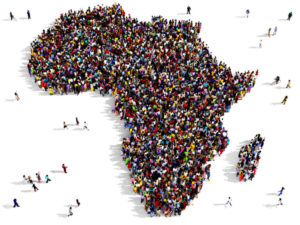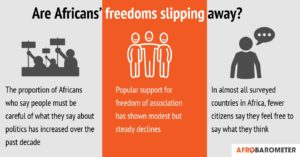Autocratic powers like China and Russia are rushing to fill the vacuum left in the wake of the global retreat of the United States and other Western democracies, reports suggest. A case in point….
Decades after the Soviet Union wooed the leaders of Africa’s newly independent nations with weapons, scholarships, and anti-colonial rhetoric, Moscow is trying to stage a comeback on the continent, says Paul Stronski, a senior fellow in Carnegie’s Russia and Eurasia Program, Can the Kremlin leverage its lean resources to wily effect on Africa? he asks (above).
A smart response to Russian expansion requires understated and proactive diplomatic efforts to preserve U.S. interests, including peace, prosperity and responsible governance in the region, argues Judd Devermont, Director of the CSIS Africa Program. It is imperative to shut down Russia’s current rising tide of influence in Africa, especially where the Kremlin seeks to weaken ties between the United States and its partners, he adds, offering five recommendations to curb Russian influence in Africa:
 First, the U.S. government should act before the Russians. It is not hard to predict where Russia will try to expand its influence. Alexis Arieff, an Africa policy analyst at the U.S. Congressional Research Service, likened it to a Venn diagram: “Does the country have useful mineral resources, is the country ripe for challenging the influence of key western actors, is the country a market for Russian arms? Those seem to be key circles that when they overlap may lead to greater Russian interest.” To be sure, there are other factors. Russia courts countries with geopolitical clout like Nigeria and Ethiopia, states like Madagascar experiencing political strife, and governments like Mozambique and countries in the Sahel facing security threats….
First, the U.S. government should act before the Russians. It is not hard to predict where Russia will try to expand its influence. Alexis Arieff, an Africa policy analyst at the U.S. Congressional Research Service, likened it to a Venn diagram: “Does the country have useful mineral resources, is the country ripe for challenging the influence of key western actors, is the country a market for Russian arms? Those seem to be key circles that when they overlap may lead to greater Russian interest.” To be sure, there are other factors. Russia courts countries with geopolitical clout like Nigeria and Ethiopia, states like Madagascar experiencing political strife, and governments like Mozambique and countries in the Sahel facing security threats….- Second, the United States should work rhetorically to isolate, not elevate Russia’s profile in Africa. There is no strategic value in overselling Russia’s role in Africa. Moscow remains a bit player in the region, despite its recent surge in activities. U.S. politicians and commentators should not describe it as having a starring role in the continent. ….
- Third, the U.S. government should practice positive engagement with African countries. It is more effective to increase U.S. engagement and investments in the region without publicly linking it to “great power competition” with Russia. This approach has the advantage of increasing diplomatic ties with African governments while undercutting the Kremlin’s image as a revanchist power and limiting opportunities for African countries to exploit the rivalry between Washington and Moscow. …
-

Afrobarometer
Fourth, the United States should aggressively enforce U.S. and UN sanctions. It should leverage existing laws to deter African governments from working with sanctioned individuals and Russia’s defense and intelligence sector. Joseph Siegle, who leads the Africa Center for Strategic Studies’s research programs, says the United States could apply provisions of the 2017 Countering America’s Adversaries Through Sanctions Act to curb Russian activities in Africa. He also recommends treating Russian private military contractors as organized criminal syndicates….
- Fifth, the U.S. government should challenge Russian propaganda efforts on the continent. The Kremlin has a variety of ongoing information and influence campaigns in Africa. … The United States could use its own platforms to increase awareness of Russia’s destabilizing activities, as well as adopt a proactive information campaign— as it did during the Cold War—to counter Russian activities.







